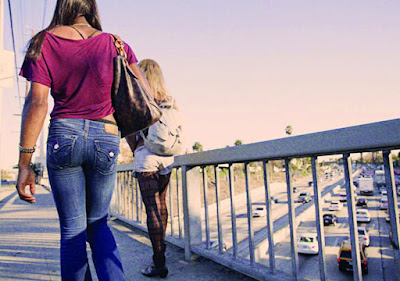Nope
Writer & Director – Jordan Peele
2022, USA-Japan
Stars – Daniel Kaluuya, Keke Palmer, Brandon Perea
On the Brain Rot podcast, director Mick Garris says “I think we’re in a really good place because diversity had become important to getting films made.”; and on the Evolution of Horror podcast, Tananarive Due says how she doesn’t think themes of the black experience can be shoved back in the horror box, post-‘Get Out’. ‘Get Out’ being a game-changing breakout hit that touched the nerve of race relations but did so through the lens of appropriation rather than red neck racism. It was smart, funny and recognisable in its “Don’t Go There!” narrative: it wasn’t difficult. Peele’s second film, ‘Us’, was more of a mess, going from home-invasion though spookhouse to conspiracy horror. Whereas ‘Get Out’ was admirable for its stripped-down precision, ‘Us’ was enjoyable for its anything-goes and everything-in gusto, even if it didn’t quite gel. And he’s good at this stuff: his Key & Peele sketch “White Zombies” is a favourite. In ‘Nope’, the social commentary concerning race is there, but it is arguably more contextual and cultural rather than the thematic engine. Diversity is finding interesting niches in the tropes of genre.
Just to mention that the trailers for ‘Nope’
were good at teasing without giving it all away (the ‘Us’ tailer was
awful). And ‘Nope’s slower,
smouldering pace seems to have left many wanting, or lingering wondering if
they enjoyed the film or not. Both Peele’s previous films had a key flaw in
that the story stopped for exposition. ‘Nope’ doesn’t have that and is
all the better for letting the audience put the information together. For
example, it doesn’t quite spell out that the objects falling from the sky is
non-digestible UFO shit, but we get the gag. It is the kind of conclusion you
can imagine two pals coming to when just riffing and laughing over a nerdy beer/coffee.
There’s the black comedy, not just when characters say the title of the movie. This
also allows for an all-time Gothic classic image of a house being rained on by
blood.
There was and is a lot of fan theory surrounding 'Nope', but mostly it’s a monster movie, and it’s highly entertaining on that front. And like many monster movies, you’ll be left unsatisfied by stupid character behaviour just so the monster can do it’s thing (Just go inside? & Why sacrifice yourself for no good reason?). And would something of such a nature really be reliant on eye contact to feed? But just go with the flow. Its slower, more contemplative pace isn’t typical of mainstream monster films, and although it has ambitions above its genre station, it is lots more fun than perhaps its pensive tone implies. And for a film somewhat critical of exploitation in the aim of cursory entertainment, it offers a lot of Big Spectacle.






.png)





















